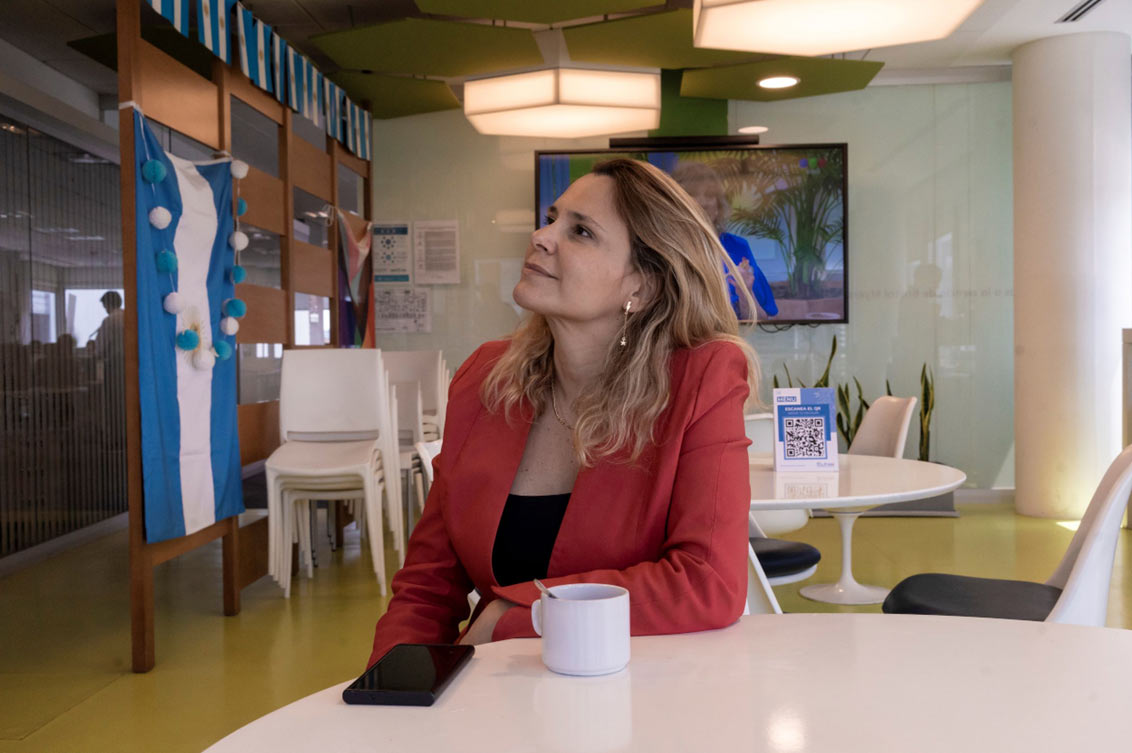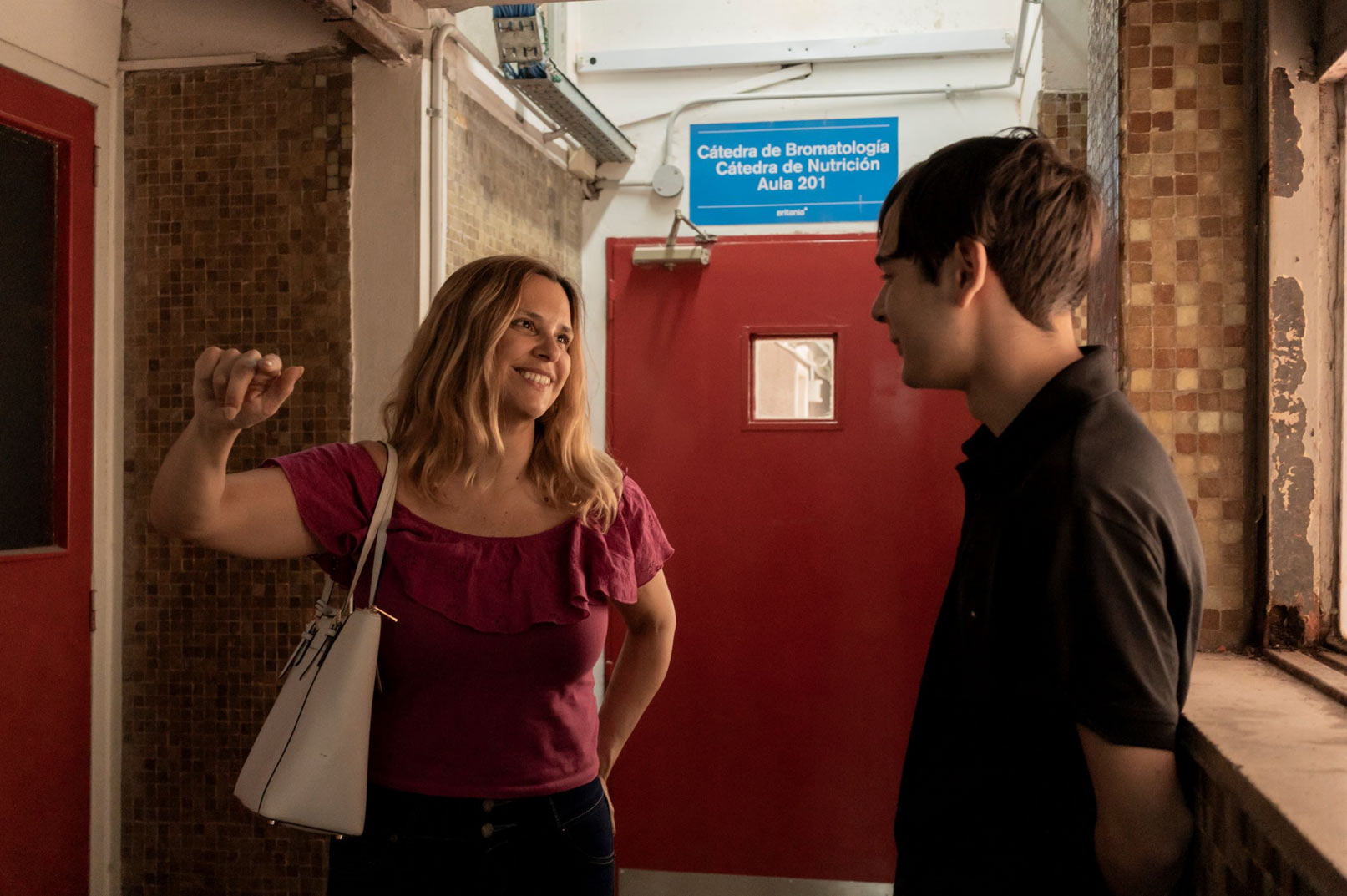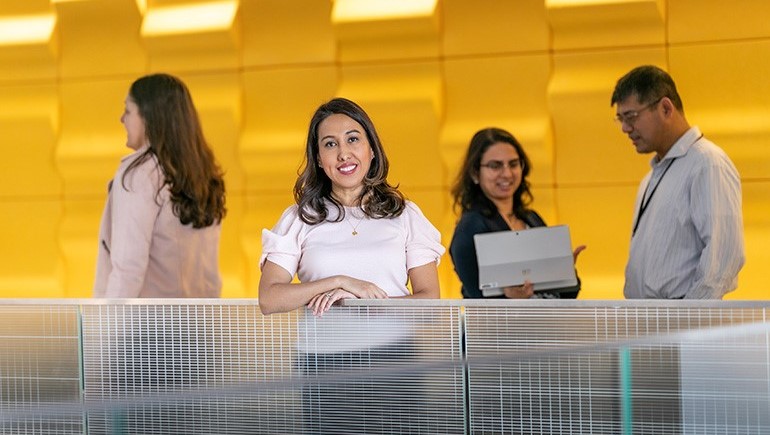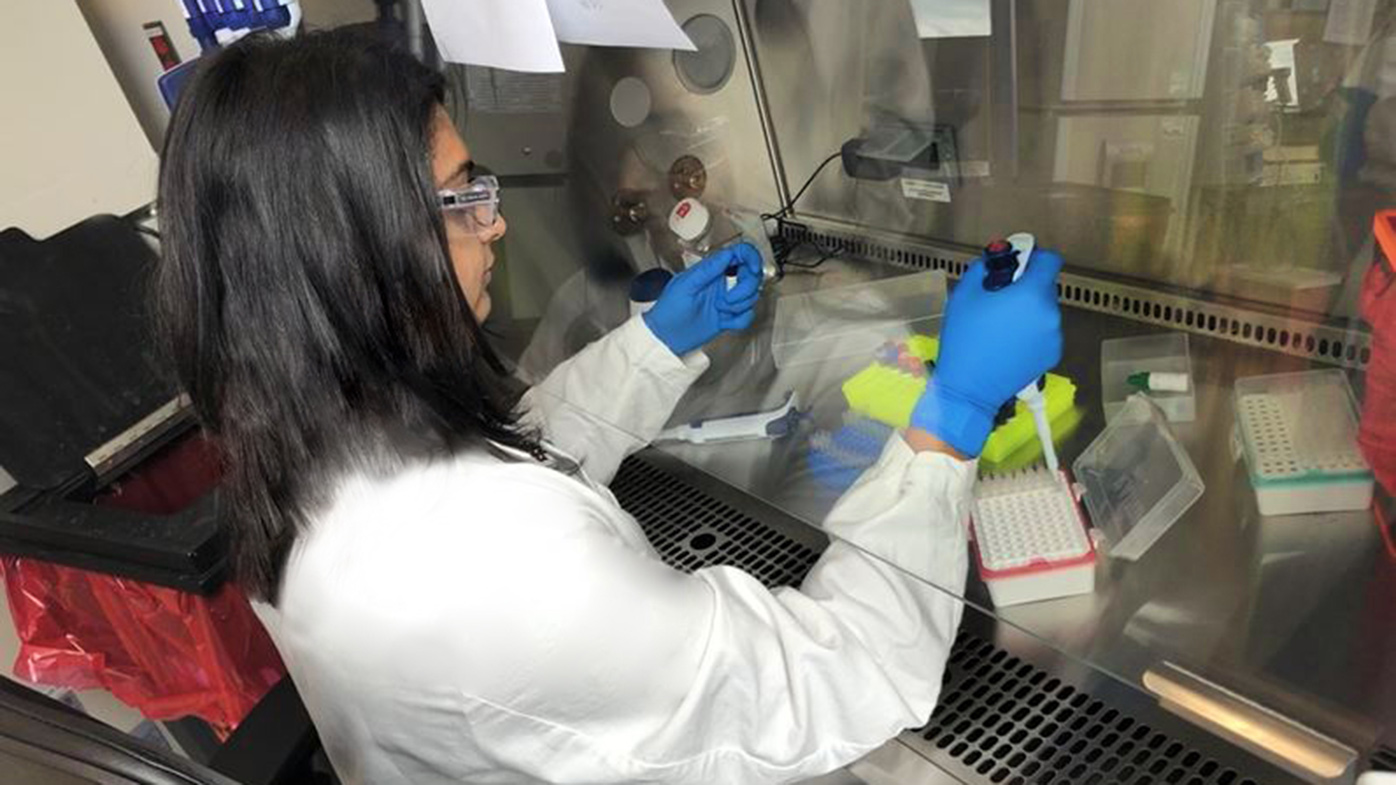Defying the stereotype
Díaz wanted to study pharmacy despite the stereotype she noticed while growing up: that scientists were mostly men.
“Sometimes it is very difficult to believe in an image of a woman scientist, a woman researcher,” she said. “In Mexico, there are still cultural and social barriers, gender biases, and machismo,” she explained, referring to a widespread sense of masculine pride and superiority.
Díaz says in the environment in which she grew up, many families and educators encouraged women to pursue professions outside of STEM (science, technology, engineering and mathematics), orienting them toward traditional gender roles. In Mexico, just three of 10 STEM professionals are women.[1]
The pay gap is another obstacle, she explains. “Some companies like BMS already have equal salaries, but many do not.”
Support at pivotal moments
Díaz received a master’s degree in pharmacology from CINVESTAV, the Center for Research and Advanced Studies of the National Polytechnic Institute, in Mexico City. There, she had the opportunity to conduct and publish new research on the effects of curcumin, found in turmeric plants, on gastric lesions.
“I’m very proud of that discovery,” she said.
What propelled her forward in the field from the start, Díaz said, was the support of her family and educators.
“Pharmacology is a complicated profession with its own adversities, but I’ve really enjoyed it because my parents always supported me at home. They encouraged me to study whatever I wanted, and I had very good teachers who believed in me.”
Not every woman receives this kind of all-around support, Díaz says, but all that matters for any young woman interested in science is that she believes in herself and what she can achieve.
“They should not let themselves be influenced by comments made by others,” she said. “They should believe in the abilities they have.”
‘A generation that broke stereotypes’
Díaz’s team at CINVESTAV left a mark in another way, too: women slightly outnumbered men in her group. “To have met these women in this institution and to have spent time with them filled me with great joy and pride,” she said, “because I think we are a generation that broke stereotypes.”
Díaz says that 10 years ago, there were few women in senior positions, but that little by little, women’s participation in STEM fields and in leadership roles is being encouraged. She says BMS is setting an example for others in the industry and across her country to motivate women to study science and share their experiences.
“BMS publicizes the achievements of successful women so that they are known and recognized,” she said. “This is what’s missing a little bit in Mexico — making the achievements of women scientists and other successful women more visible.”
Roberta Cristina Nogueira Corigliano
Associate Director, Information Technology, Brazil
Roberta Cristina Nogueira Corigliano says she didn’t choose IT; IT chose her.
“As a girl, I was always the outsider,” Nogueira said. “I loved science and math and physics.” She loved reading and watching science fiction, “dreaming to live in the future,” she said. "I kind of challenged the system to be studying all those areas.”
She started out in finance with a degree in economics, but her love for problem-solving ultimately drew her toward IT. She had the natural ability, but Nogueira says she lacked the technical skills. So she dove into professional development courses on IT while working her 9-5 job in finance.
But entering a STEM field as a woman in Brazil had its challenges. Nogueira said she had to brace herself when entering a meeting, knowing she would be one of few women — sometimes the only woman — in the room. “At that time, you didn’t find women in any leadership position and IT was not the exception,” she said. “You didn’t have many examples or other women to share or talk with.”
Diversity nurtures creativity
Nogueira acknowledges that gender diversity is slowly and steadily improving. Latin America is unique, with among the highest ratios of women researchers; but overall, women remain greatly underrepresented across STEM fields. Nogueira says that perhaps there’s a desire among her fellow Latinas to be part of the solution to some of the region’s problems.
“We have inequities — healthcare is just one area. To solve these problems, you need to be creative,” she said. “And creativity is very present, I can assure you, in Brazilians, and that makes a difference in looking for different ways to solve the same problem.”
In Nogueira’s field of Information Communications and Technology (ICT), just 15% of recent graduates were women. There are obstacles that are slowly being broken down — from financial independence to educational opportunities to cultural norms.
“I think it’s embedded in the education that we receive at home and at school that [STEM] is not for you,” she said. “So, it really requires some passion, some incentive for girls to start [in STEM] and not drop off.”










